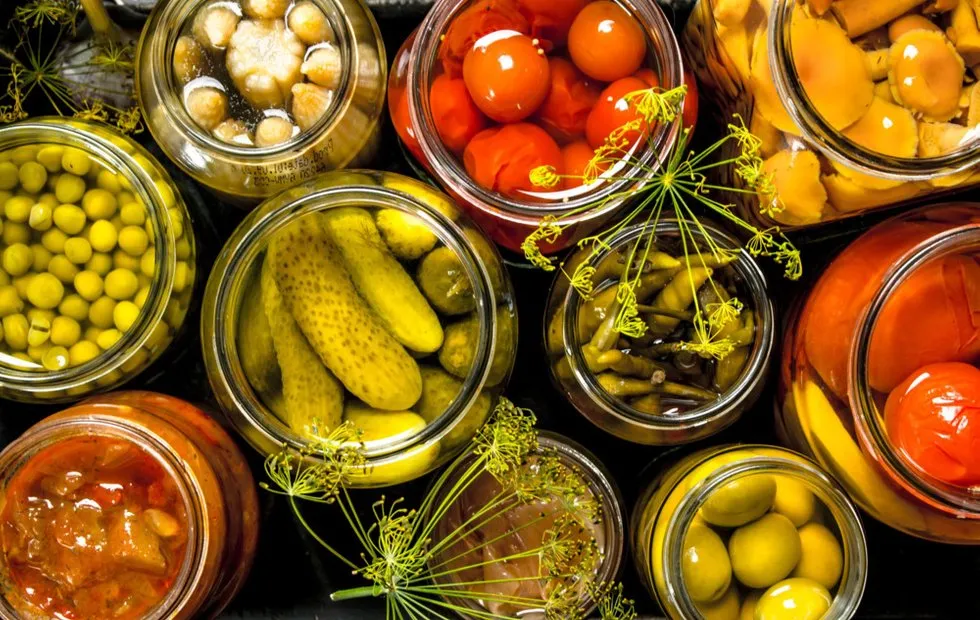There can be your advertisement
300x150
Mediterranean Diet: Secret of Longevity or Simply Delicious Food?
We will uncover the benefits of the Mediterranean diet as a way to maintain health and longevity
Have you ever wondered why people living in Mediterranean countries often look younger than their age and rarely suffer from heart disease? The answer may lie in their diet. Let's find out what the Mediterranean diet is, why scientists consider it one of the most beneficial in the world, and how to adapt it for life in Russia.
It is important to note: the information in this article is for general awareness and not a medical recommendation. Before changing your diet, especially if you have chronic diseases, consult with a doctor.
What is the Mediterranean diet and why is it all the rage?
The Mediterranean diet is not a strict set of rules but rather a way of eating typical for Mediterranean countries. Its basis includes:
- A large amount of vegetables and fruits;
- Whole grain products;
- Legumes and nuts;
- Olive oil as the main source of fats;
- Moderate consumption of fish and seafood;
- Limited consumption of red meat;
- Moderate intake of wine (usually red) with meals.
It sounds delicious, right? But the benefits go beyond taste. Scientists have found that this type of nutrition can significantly impact our health.
Why does the heart love the Mediterranean diet?
Multiple studies show that the Mediterranean diet can reduce the risk of cardiovascular diseases. Here are some interesting facts:
- The PREDIMED study conducted in Spain showed that people following the Mediterranean diet with added olive oil or nuts had a 30% lower risk of cardiovascular disease compared to those who followed a low-fat diet.
- A 2019 meta-analysis published in the journal "Nutrients" confirmed that the Mediterranean diet is associated with a reduced risk of cardiovascular disease and mortality.
- It turns out the secret lies in the combination of foods. Antioxidants from vegetables and fruits, healthy fats from olive oil and fish, fiber from whole grains—these all work together to protect our hearts.
The Mediterranean diet and longevity: What do blue zones have in common?
Blue zones are regions of the world where people live longer and have fewer chronic diseases. Guess what? Many of these zones are located in the Mediterranean!
- The island of Ikaria in Greece, where people have one of the lowest rates of dementia in the world.
- Sardinia in Italy, where men live particularly long lives.
Researchers found that the diet of people living in these regions is very similar to what we call the Mediterranean diet. But it's not just about food. Lifestyle also plays a role: physical activity, close social connections, and the ability to cope with stress.
Can the Mediterranean diet be adapted for life in Russia?
Of course! Although some products may be less available or more expensive in Russia, the core principles of the Mediterranean diet can easily be adapted:
- Replace olive oil with sunflower or rapeseed oil when the former is unavailable or too expensive.
- Use local fish varieties instead of Mediterranean fish: cod, hake, salmon.
- Seasonal vegetables and fruits can be replaced with frozen options during winter.
- Red wine can be substituted with natural berry juices or sugar-free compotes.
- Nuts and seeds are a great alternative to regular snacks.

Don't strive to copy the Mediterranean menu exactly. Choose key principles and adapt them according to your tastes and available products. The main thing is to increase consumption of vegetables, fruits, whole grains, and healthy fats.
Mediterranean diet in reality: what to keep in mind?
When adapting the Mediterranean diet to Russian conditions, it's important to consider several points:
- Climate: during cold seasons, the body may require more calories. Don't hesitate to include more healthy fats and proteins in your diet.
- Product availability: not all Mediterranean products are easy to find in Russia. Look for local analogs with similar nutritional profiles.
- Cultural traditions: don't completely abandon familiar dishes. Instead, try making them more "Mediterranean" by adding more vegetables or replacing animal fats with plant-based ones.
Simple steps toward Mediterranean-style eating:
- Start by increasing the portion of vegetables in each meal.
- Replace refined grains with whole grains.
- Use olive oil instead of butter when cooking.
- Eat fish at least twice a week.
- Replace meat snacks with a handful of nuts or seeds.
Remember that the Mediterranean diet is not a strict set of rules but rather a philosophy of eating. It implies not only a specific set of foods but also a special approach to food: enjoying the cooking process, sharing meals with family and friends, and moderation in all things.
Adopting principles of the Mediterranean diet into your life can not only improve your health but also open up a new world of flavors and aromas. So, perhaps it's time to start your culinary journey to the shores of the Mediterranean right today?
Key takeaways from the article:
- The Mediterranean diet is based on high consumption of vegetables, fruits, whole grains, olive oil, and moderate fish intake;
- Studies show that this diet can reduce the risk of cardiovascular disease by 30%;
- Regions where the Mediterranean diet is common are often "blue zones" of longevity;
- The diet can be adapted for conditions by replacing some products with local analogs;
- It's not just about what you eat but how: savoring food, eating in company, and moderation;
- Transitioning to the Mediterranean diet should be gradual, starting with increasing vegetable portions;
- Before making significant changes to your diet, consult a doctor, especially if you have chronic diseases.
Cover: freepik.com
More articles:
 Hormones and Nutrition: How What We Eat Affects Our Mood and Well-Being
Hormones and Nutrition: How What We Eat Affects Our Mood and Well-Being Interior Solutions for Rented Housing: How to Improve Without Major Renovation
Interior Solutions for Rented Housing: How to Improve Without Major Renovation Life at High Altitude: How People Adapt to Living in the World's Highest Settlements
Life at High Altitude: How People Adapt to Living in the World's Highest Settlements Cylinders, Honeycombs, and Secrets: What Hides Behind the Walls of Mельников House in Moscow Alleys
Cylinders, Honeycombs, and Secrets: What Hides Behind the Walls of Mельников House in Moscow Alleys Kitchen of the Future: Innovations and Trends for 2025 in Design and Appliances
Kitchen of the Future: Innovations and Trends for 2025 in Design and Appliances Simple winter preserves: how to keep the taste of summer in a jar without extra effort?
Simple winter preserves: how to keep the taste of summer in a jar without extra effort? Small Bathroom, Big Possibilities: Tips That Expand Space
Small Bathroom, Big Possibilities: Tips That Expand Space Second Life of Things: Creative Approach to Recycling at Home
Second Life of Things: Creative Approach to Recycling at Home